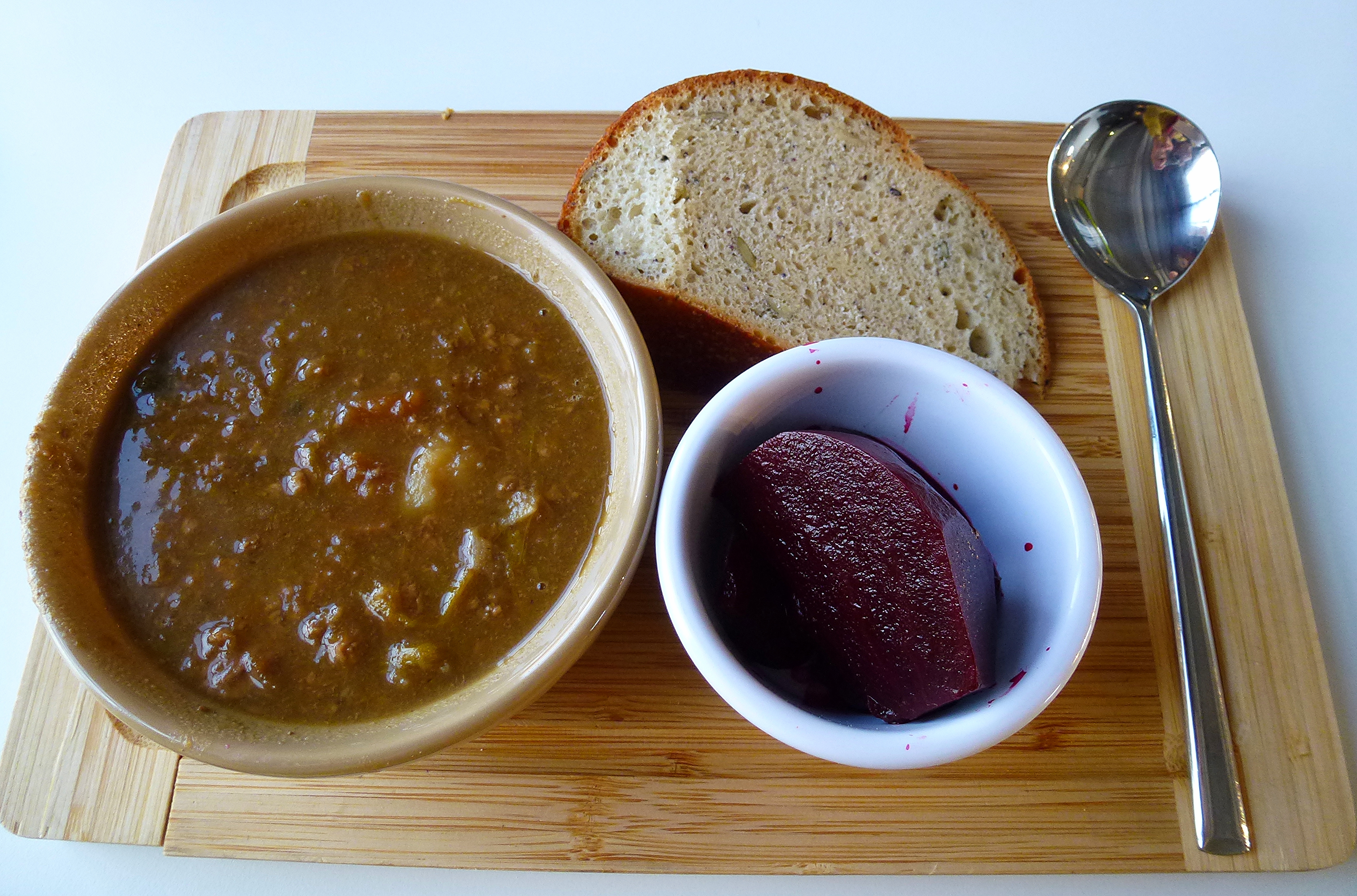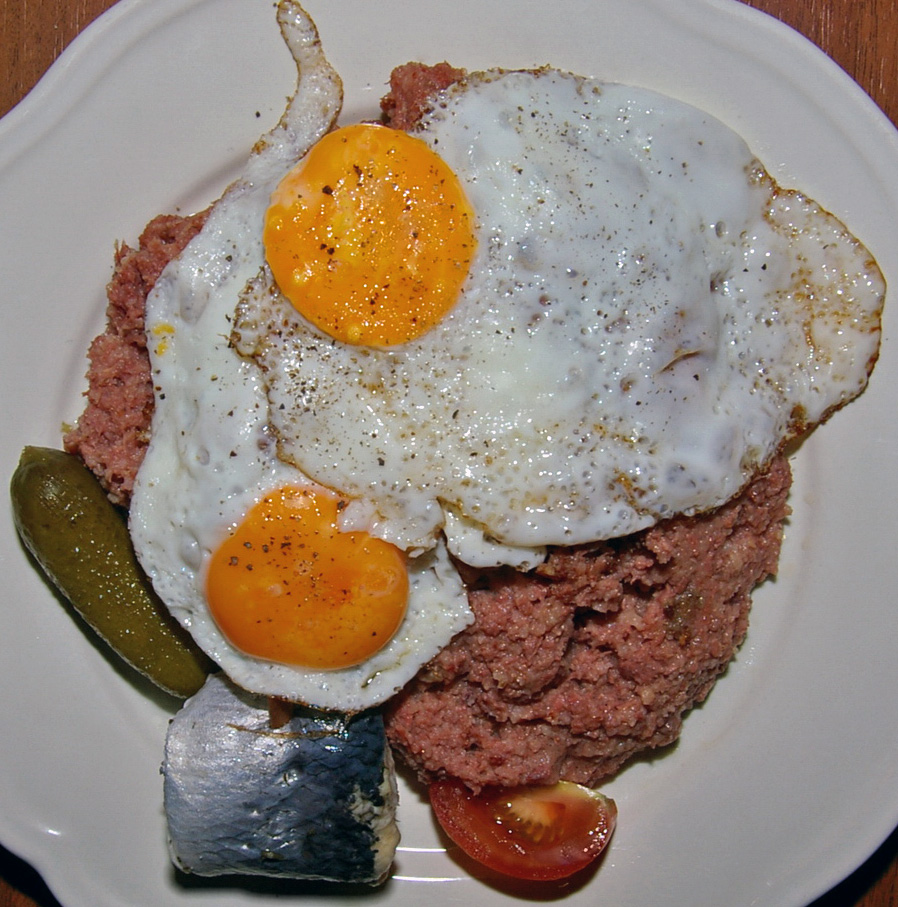|
Scouse (food)
Scouse is a type of stew typically made from chunks of meat, usually beef or lamb, with potatoes, carrots and onion. It is particularly associated with the port of Liverpool, which is why the inhabitants of that city are often referred to as "Liverpool#Demonymy and identity, scousers". The word comes from ''lobscouse'', a stew commonly eaten by sailors throughout northern Europe in the past, and surviving in different forms there today. Description Scouse is particularly associated with the port of Liverpool. The recipe for scouse is fairly broad, it was traditionally made from leftovers and whatever was in season at the time. ''The Guardian, Guardian'' food writer Felicity Cloake describes scouse as being similar to Irish stew, or Lancashire hotpot, though generally using beef rather than lamb as the meat.Cloake, Felicity"How to cook the perfect scouse – recipe", ''The Guardian'', 30 October 2019. Retrieved 20 October 2020 While ingredients can vary, those essential are potato ... [...More Info...] [...Related Items...] OR: [Wikipedia] [Google] [Baidu] |
Liverpool
Liverpool is a city and metropolitan borough in Merseyside, England. With a population of in 2019, it is the 10th largest English district by population and its metropolitan area is the fifth largest in the United Kingdom, with a population of 2.24 million. On the eastern side of the Mersey Estuary, Liverpool historically lay within the ancient hundred of West Derby in the county of Lancashire. It became a borough in 1207, a city in 1880, and a county borough independent of the newly-created Lancashire County Council in 1889. Its growth as a major port was paralleled by the expansion of the city throughout the Industrial Revolution. Along with general cargo, freight, and raw materials such as coal and cotton, merchants were involved in the slave trade. In the 19th century, Liverpool was a major port of departure for English and Irish emigrants to North America. It was also home to both the Cunard and White Star Lines, and was the port of registry of the ocean li ... [...More Info...] [...Related Items...] OR: [Wikipedia] [Google] [Baidu] |
Latvian Language
Latvian ( ), also known as Lettish, is an Eastern Baltic language belonging to the Baltic branch of the Indo-European language family, spoken in the Baltic region. It is the language of Latvians and the official language of Latvia as well as one of the official languages of the European Union. There are about 1.3 million native Latvian speakers in Latvia and 100,000 abroad. Altogether, 2 million, or 80% of the population of Latvia, speak Latvian. Of those, around 1.16 million or 62% of Latvia's population use it as their primary language at home, however excluding the Latgale Region it is spoken as a native language in villages and towns by over 90% of the population. As a Baltic language, Latvian is most closely related to neighboring Lithuanian (as well as Old Prussian, an extinct Baltic language); however Latvian has followed a more rapid development. In addition, there is some disagreement whether Latgalian and Kursenieki, which are mutually intelligible with Latvian, s ... [...More Info...] [...Related Items...] OR: [Wikipedia] [Google] [Baidu] |
Alf Torp
Alf Torp (September 27, 1853 – September 26, 1916) was a Norway, Norwegian philology, philologist and author. He is most known for his work with Indo-European languages, Indo-European and Old Norse, Nordic language history and meaning of ancient languages. Biography Alf Torp was born in Stryn, Sogn og Fjordane, Norway. He became cand. philol. in 1877 at the Bergen Cathedral School. He was a student of Sophus Bugge, and during a stay in Leipzig in 1878-80 a student of Georg Curtius and Ernst Windisch. In 1881 he got his doctorate at the University of Leipzig with the Thesis, dissertation ''Die Flexion des Pali in ihrem Verhältnis zum Sanskrit''. He taught at the University of Oslo from 1883 and in 1894 he became professor in Sanskrit and comparative linguistics. He published numerous papers about the inscriptions in various languages including Etruscan language, Etruscan, Phrygian language, Phrygian, Venetic language, Venetic, Lycian language, Lycian and Hittite language, H ... [...More Info...] [...Related Items...] OR: [Wikipedia] [Google] [Baidu] |
Hjalmar Falk
Peterolsen Groth Hjalmar Seierstedt Falk (April 2, 1859 – November 2, 1928) was a Norwegian linguist and philologist. Early life and education Falk was born in Vang. He started his university studies in 1876 and graduated with an education degree in languages and history in 1882. After this he taught in Oslo while continuing research, especially on Germanic languages and Nordic mythology, including scholarship stays in Germany and England. Falk received the Crown Prince Gold Medal in 1885 and was appointed a |
Labskaus
Labskaus () is a culinary speciality from northern Germany and in particular from the cities of Bremen, Hamburg, and Lübeck. The main ingredients are salted meat or corned beef, potatoes, and onion. Some recipes put beetroot, pickled gherkin, or even herring into it, while others have these ingredients as side dishes.SPIEGEL Online on Labskaus in Hamburg (German) Der Spiegel Etymology The origin of this word is uncertain. One possible source for the name could be Latvian ''Labs kauss'', meaning 'good bowl' or hotpot, or Lith ...[...More Info...] [...Related Items...] OR: [Wikipedia] [Google] [Baidu] |
Friedrich Kluge
Friedrich Kluge (21 June 1856 – 21 May 1926) was a German philologist and educator. He is known for the Kluge etymological dictionary of the German language (''Etymologisches Wörterbuch der deutschen Sprache''), which was first published in 1883. Biography Kluge was born in Cologne. He studied comparative linguistics and classical and modern philologies at the universities of Leipzig, Strasbourg and Freiburg. As a student, his instructors were August Leskien, Georg Curtius, Friedrich Zarncke and Rudolf Hildebrand at Leipzig and Heinrich Hübschmann, Bernhard ten Brink and Erich Schmidt at the University of Strasbourg.Kluge, Friedrich In: Neue Deutsche Biographie (NDB). Band 12, Duncker & Humblot, Berlin 1980, , S. 140 f. He became a teacher of English and German philology at Strassburg (1880), an assistant professor of Germ ... [...More Info...] [...Related Items...] OR: [Wikipedia] [Google] [Baidu] |
Tobias Smollett
Tobias George Smollett (baptised 19 March 1721 – 17 September 1771) was a Scottish poet and author. He was best known for picaresque novels such as ''The Adventures of Roderick Random'' (1748), ''The Adventures of Peregrine Pickle'' (1751) and ''The Expedition of Humphry Clinker'' (1771), which influenced later novelists, including Charles Dickens. His novels were liberally altered by contemporary printers; an authoritative edition of each was edited by Dr O. M. Brack Jr and others. Early life and family Smollett was born at Dalquhurn, now part of Renton in present-day West Dunbartonshire, Scotland, and baptised on 19 March 1721 (his birth date is estimated as 3 days previously). He was the fourth son of Archibald Smollett of Bonhill, a judge and landowner, laird of Bonhill, living at Dalquhurn on the River Leven, who died about 1726, when Smollett was just five years old. His mother Barbara Smollett née Cunningham brought the family up there, until she died about 1766. He ... [...More Info...] [...Related Items...] OR: [Wikipedia] [Google] [Baidu] |
Merriam-webster
Merriam-Webster, Inc. is an American company that publishes reference books and is especially known for its dictionaries. It is the oldest dictionary publisher in the United States. In 1831, George and Charles Merriam founded the company as G & C Merriam Co. in Springfield, Massachusetts. In 1843, after Noah Webster died, the company bought the rights to ''An American Dictionary of the English Language'' from Webster's estate. All Merriam-Webster dictionaries trace their lineage to this source. In 1964, Encyclopædia Britannica, Inc. acquired Merriam-Webster, Inc. as a subsidiary. The company adopted its current name in 1982. History Noah Webster In 1806, Webster published his first dictionary, ''A Compendious Dictionary of the English Language''. In 1807 Webster started two decades of intensive work to expand his publication into a fully comprehensive dictionary, ''An American Dictionary of the English Language''. To help him trace the etymology of words, Webster learned ... [...More Info...] [...Related Items...] OR: [Wikipedia] [Google] [Baidu] |
Webster's Dictionary
''Webster's Dictionary'' is any of the English language dictionaries edited in the early 19th century by American lexicographer Noah Webster (1758–1843), as well as numerous related or unrelated dictionaries that have adopted the Webster's name in honor. "''Webster's''" has since become a genericized trademark in the United States for English dictionaries, and is widely used in dictionary titles. Merriam-Webster is the corporate heir to Noah Webster's original works, which are in the public domain. Noah Webster's ''American Dictionary of the English Language'' Noah Webster (1758–1843), the author of the readers and spelling books which dominated the American market at the time, spent decades of research in compiling his dictionaries. His first dictionary, s:A Compendious Dictionary of the English Language, ''A Compendious Dictionary of the English Language'', appeared in 1806. In it, he popularized features which would become a hallmark of American English spelling (''c ... [...More Info...] [...Related Items...] OR: [Wikipedia] [Google] [Baidu] |
Ned Ward
Ned Ward (1667 – 20 June 1731), also known as Edward Ward, was a satirical writer and publican in the late 17th and early 18th century in London. His most famous work, ''The London Spy'', appeared in 18 monthly instalments from November 1698. It was described by its author as a "complete survey" of the London scene and published in book form in 1703. Biography Early life Ned Ward was born in 1667 in Oxfordshire. According to Theophilus Cibber, Ward was "a man of low extraction... who never received any regular education", but he is likely to have been educated at one of the Oxfordshire grammar schools.Howard William Troyer, ''Ned Ward of Grubstreet; a study of sub-literary London in the eighteenth century'', Cambridge, Mass.: Harvard UP, 1946. By 1691 Ward had made his way to London. His first publication, ''The Poet's Ramble After Riches'', describes in humorous Hudibrastic couplets his poverty and his disappointment at not receiving an inheritance. Prose satires that followe ... [...More Info...] [...Related Items...] OR: [Wikipedia] [Google] [Baidu] |
Hardtack
Hardtack (or hard tack) is a simple type of dense biscuit or Cracker (food), cracker made from flour, water, and sometimes salt. Hardtack is inexpensive and long-lasting. It is used for sustenance in the absence of perishable foods, commonly during long sea voyages, land migrations, and military campaigns. Along with salt pork, hardtack was a standard ration for many militaries and navies from the 17th through the early 20th centuries. Etymology The name is derived from "tack", the British sailor slang for food. It is known by other names including ''brewis'' (possibly a cognate with "brose"), ''cabin bread'', ''pilot bread'', ''sea biscuit'', ''soda crackers'', ''sea bread'' (as rations for sailors), ''ship's biscuit'', or pejoratively as ''dog biscuits'', ''molar breakers'', ''sheet iron'', ''tooth dullers'', ''armor plates'' (Germany) and ''worm castles''. Australian and New Zealand military personnel knew them with some sarcasm as ''ANZAC wafers'' (not to be confused with Anz ... [...More Info...] [...Related Items...] OR: [Wikipedia] [Google] [Baidu] |






